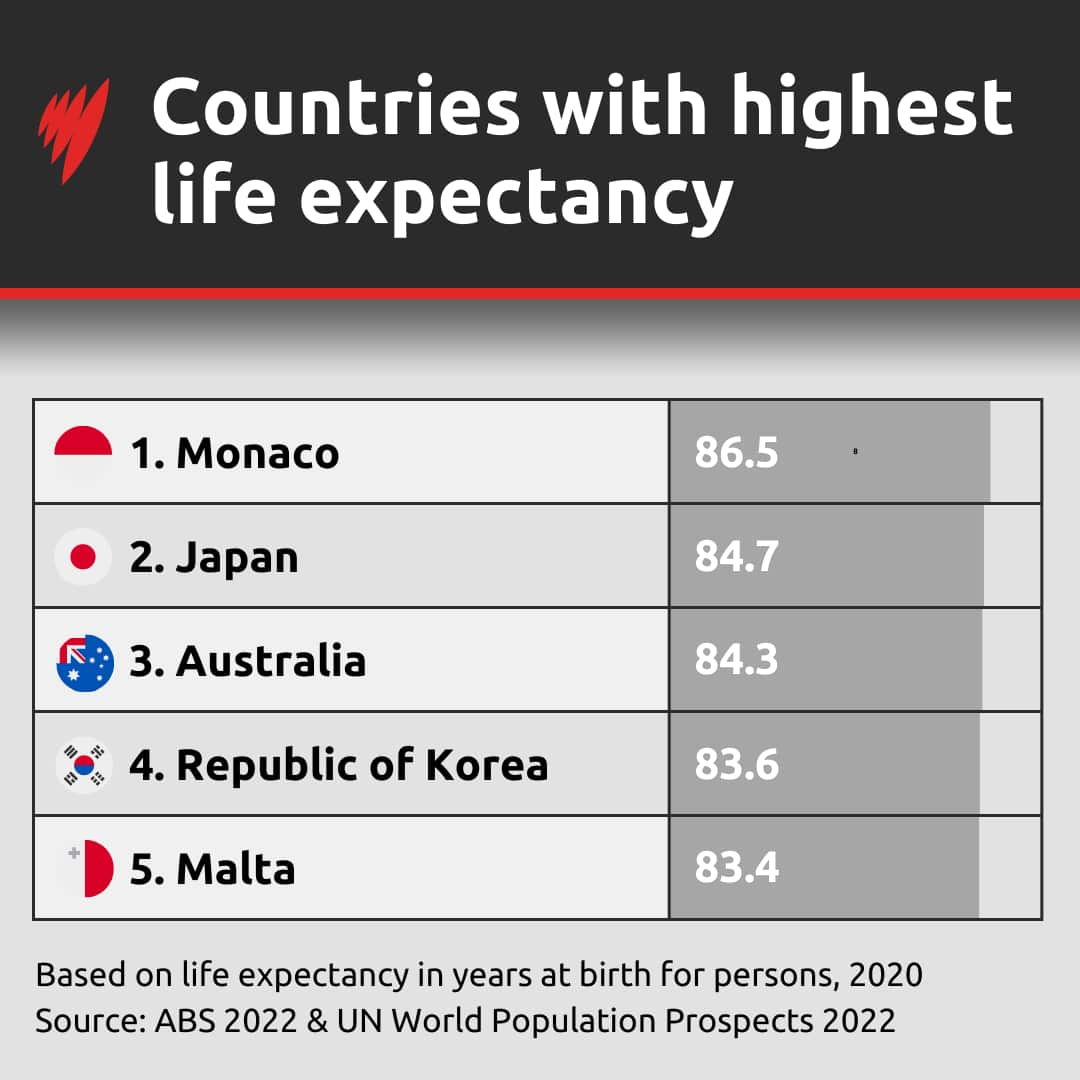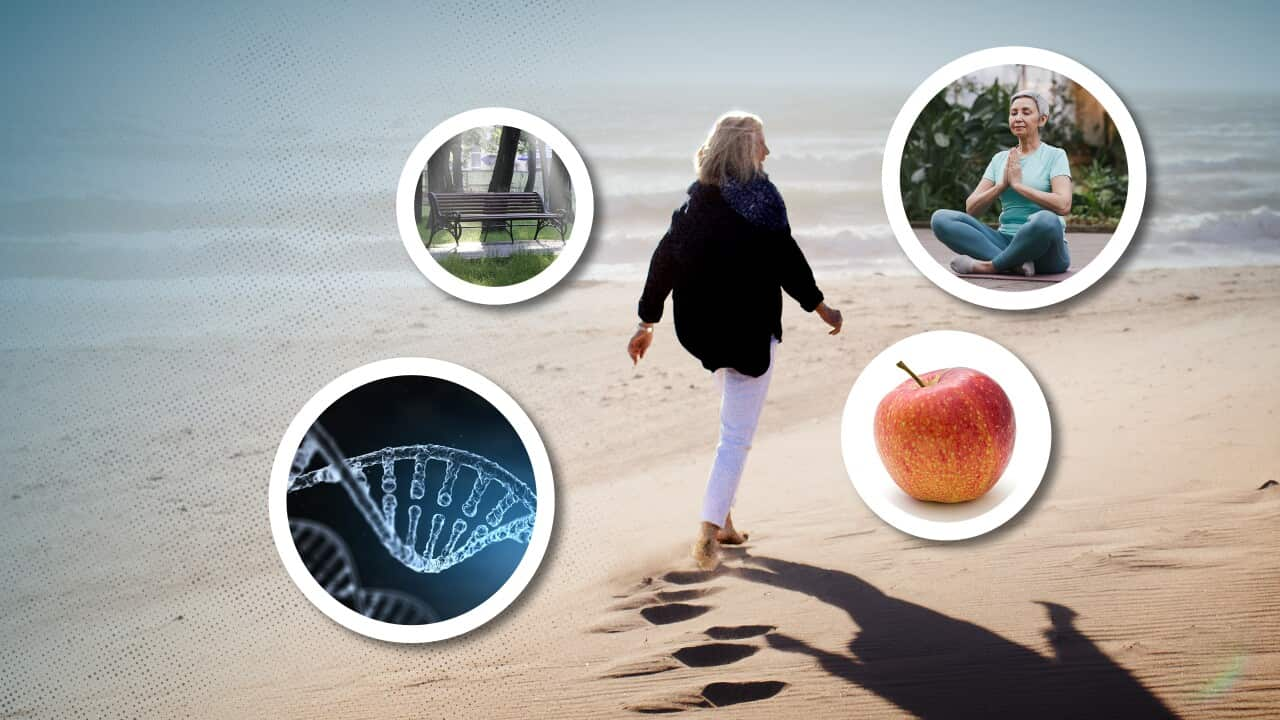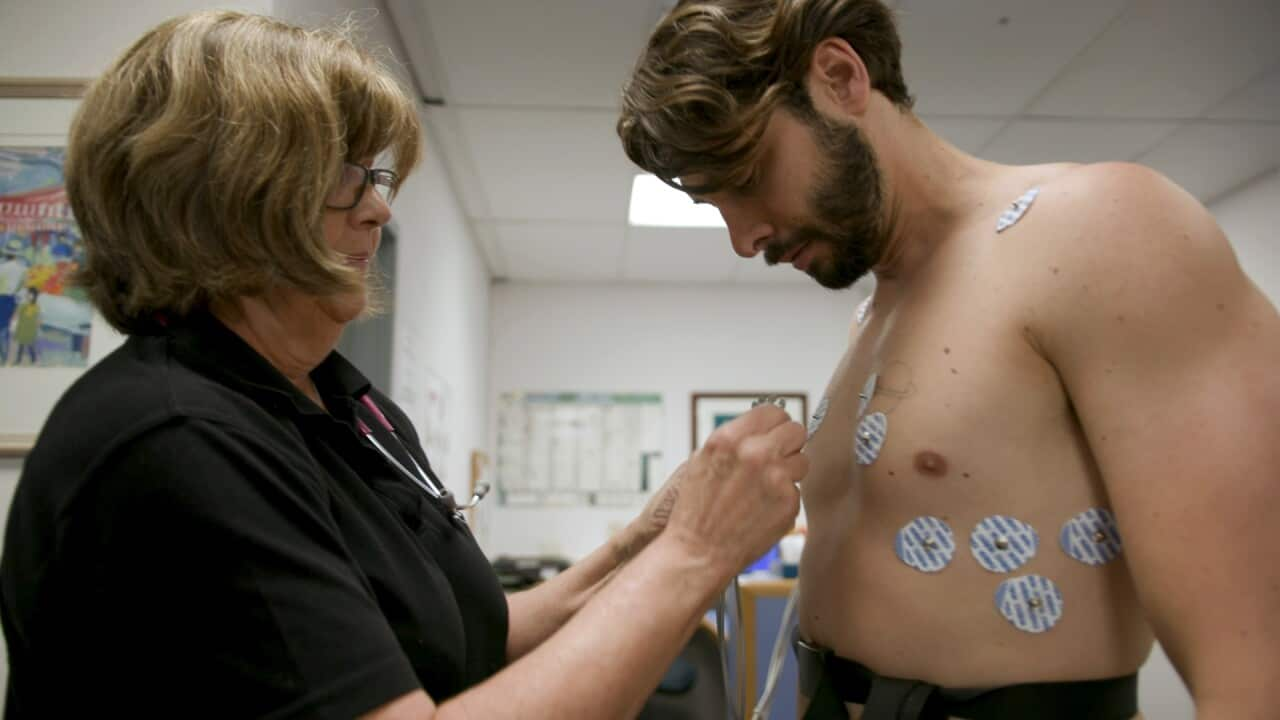KEY POINTS:
- The world's oldest person - a French nun - has died aged 118, according to her retirement home.
- She reportedly enjoyed chocolate and had a glass of wine every day.
- Experts say living a long life is determined by a combination of genetics, lifestyle factors, and your environment.
The world's oldest person - French nun Sister Andrée - died at her retirement home aged 118 years and 340 days on Tuesday.
She survived a bout of COVID-19 in 2021 with no symptoms, enjoyed chocolate, and drank a glass of wine every day, according to Guinness World Records.
So reach older ages than others, and is there a simple secret to a long and healthy life?
Why do some people live longer than others?
Nicolas Cherbuin, professor at the National Centre for Epidemiology and Population Health in Canberra, said the likelihood of living to an old age is determined by a combination of factors.
"About 25 per cent is determined by genetics ... which means that about 75 per cent is due to other factors, called environmental factors," he said.
"Some are under the control of society, for example, what is the environment like, versus others where we as individuals have more control."
"We know that lifestyle has a substantial impact on the mechanisms that lead to better health or accelerated ageing, we haven't identified all of them but it's clear that some relate to diet, physical activity and metabolic factors," he said.
"Others relate to mental health, how happy, stressed or depressed we might be, and others relate to more external factors like viral infections, pollutions in the air, and these types of exposures."
Privilege and socioeconomic factors
Professor Cherbuin said it is also important to consider the impact of social and cultural factors on health and ageing, with wealthy populations in developed countries more likely to have access to resources and education for living a healthy lifestyle.
"Many of these things are determined by social and socioeconomic factors; we might focus on certain things like physical activity or eating good food, and think that it is in the domain of the individual and they have the choice to do these things," he said.

According to Our World in Data, Chad has the world's lowest life expectancy. Source: SBS News
Food and nutrition scientist Emma Beckett said limited finances can also contribute to other environmental factors which can impact health and lifespan.
"When people are poor, they have lower quality diets, but they also have lower access to health care, more physical jobs, lower standards of housing ... we can’t just try to fix the eating and think that solves everything," she said.
"Big picture, systemic changes are needed."
How can you extend your life expectancy?
The pursuit of wellness and everlasting youth has spread across the internet in recent years, with a variety of supplements, programs, and even scientists claiming to have cracked the code to extend life.
Many promise to reverse the ageing process, improve lifespan, and alter key biomarkers (characteristics of the body that you can measure, such as blood pressure).
Dr Beckett said many of these tools are simply marketing ploys, and advises focusing on more sustainable efforts such as eating a healthy balanced diet with lots of fruit, vegetables and whole grains.
"Superfoods and biohacking are marketing constructs, not scientific concepts," she said.
"They are designed to get you to pay more for things, and they are also problematic in that they can distract people from cheaper more sustainable changes."
Dr Beckett said a balanced diet can reduce the chances of developing numerous health conditions such as diabetes or cancer, which can lead to earlier death.
"We can’t turn back our biological clocks and there is no fountain of youth, but a healthy diet can help us to live longer by reducing our risks of lots of different conditions like cancers, high blood pressure or type two diabetes, which could cause other complications that might cause earlier deaths," she said.

According to the Australian Bureau of Statistics, Monaco has the highest life expectancy in the world. Source: SBS News
"There is such strong evidence that exercise and good diet are important to mental and physical health, they have a very strong influence," he said.
"The third one, which is equally important but often somewhat ignored, is the social component ... if we don't have a healthy social environment, we don't function very well."
Do we focus too much on lifespan?
In addition to looking younger and living longer, experts say the pursuit of an extended lifespan should also include overall health rather than reaching a certain number.
"What is more important than life span is health span, which means how long you live well, not just how long you live," Dr Beckett said.
"Having a healthy balanced diet isn’t just about preventing or reducing our risks of illness, it's about how well our bodies are able to cope with challenges when they come."
Professor Cherbuin agrees.
"There is no point extending lifespan if we don't have a good life, and I think there is too much directed at having a long lifespan rather than being healthy while we live," he said.
"People usually only talk about the biological aspect, living longer with a healthy body, but we have no understanding of what living a very long life means in terms of psychological or mental health ... we're not made to live that long."











